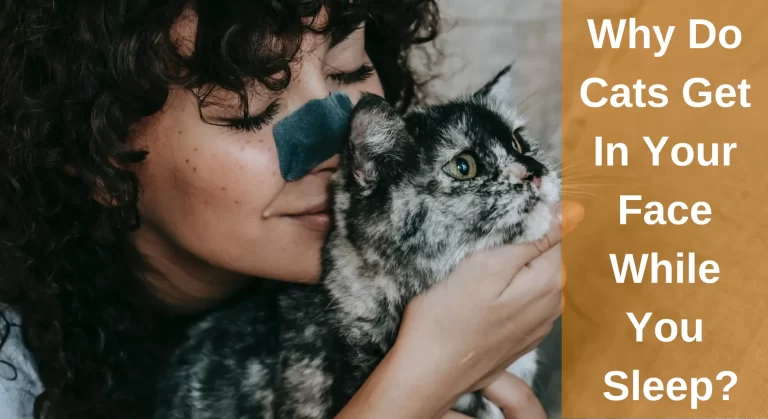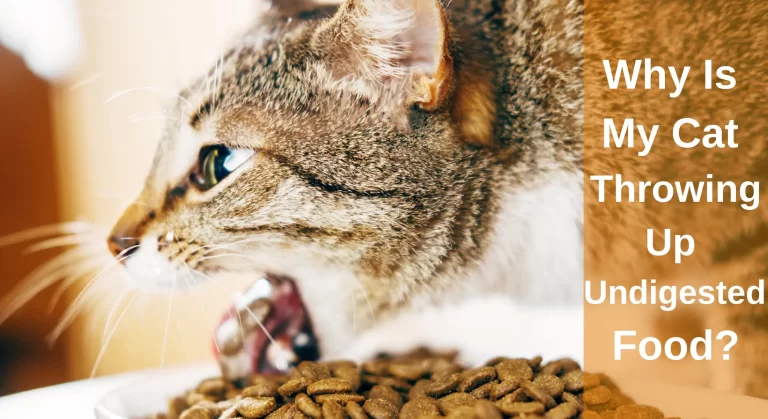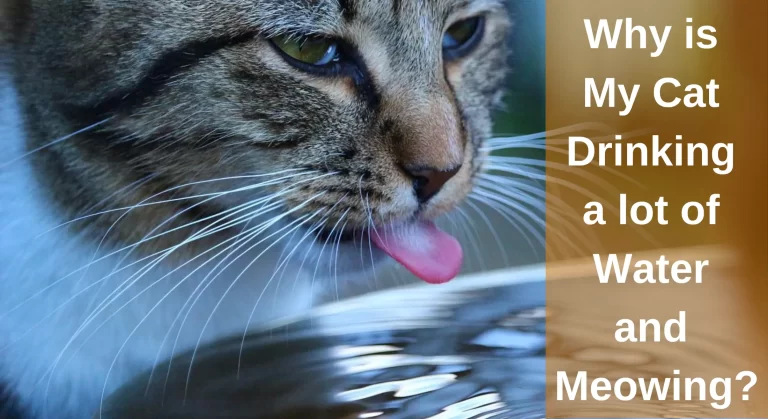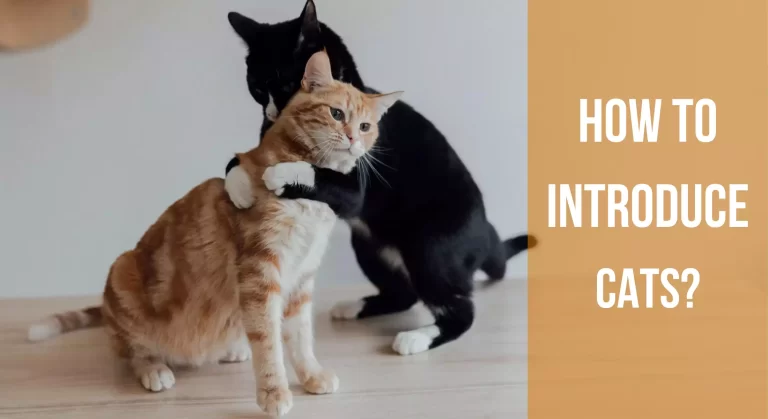Do Cats Get Clingy When You Are Pregnant? All You Need To Know
We’ll never know for sure, but it appears that cats can sense when anything is wrong with your body before you start displaying. Whether cats can detect pregnancy and link changes to an upcoming new arrival is far more difficult to answer, but let’s look at the facts.
Every woman is unique, as are all cats. How rapidly cats can detect pregnancy might be as early as three or four weeks. Some cats will desire extra attention, while others will not modify their behaviour. So, do cats get clingy when you are pregnant?
When you are pregnant, your cat may become clingy due to changes in pheromones, body temperature, and daily activities that have changed in the home. Your body will change throughout pregnancy, and you will become a warm, cosy, and long-term “bed” for kitties who love to snuggle up with you.
This article aims to explain how your cats know you are pregnant, how they respond to signs of pregnancy, and how you can help your cat adjust to your pregnancy.
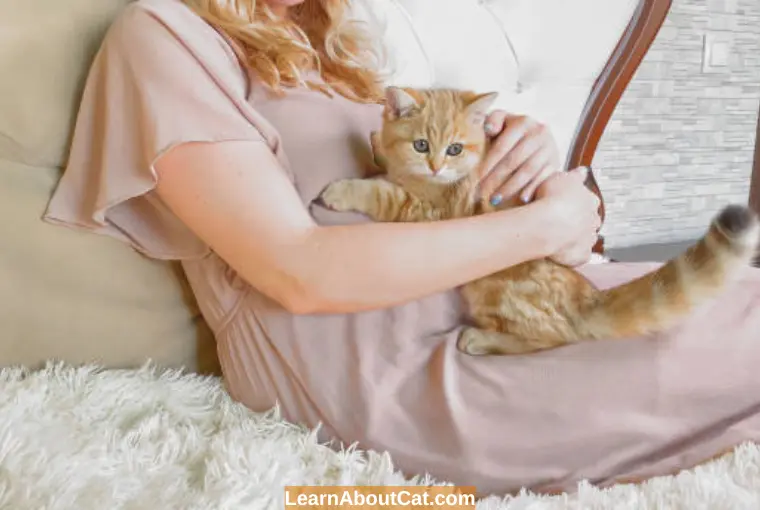
Reasons Why Do Cats Get Clingy When You Are Pregnant
During pregnancy, most cats act strangely towards pregnant women. As your pregnancy progresses, your cat may seem extra clingy. When you’re pregnant, your cat may become extra clingy due to several common reasons.
1. They Notice the Bump
It is common for cats to notice changes in their appearance when they are between 16-20 weeks pregnant, which is the second trimester. Cats might stare at or sniff your belly. They might even put a paw on it to confirm it’s still you.
There seems to be something wrong with cats’ sense of smell, but they are unable to figure out what it is.
2. Increase in Body Heat
A woman’s blood volume increases by approximately 45% during pregnancy. There is a possibility that cats can detect pregnancy by detecting a higher body temperature and blood volume.
The warmth of pregnancy makes cats want to snuggle up to them. The cat might lay next to you, rub its paws against your abdominal area, or place its paws on your belly during pregnancy.
3. They Smell Hormonal Changes
Cats have an excellent sense of smell, making this possible. Pregnancy causes your hormone levels to change dramatically. Progesterone, estrogen, and human chorionic gonadotropin (hCG, for short) are produced in high amounts.
While it is possible for your scent to change during pregnancy, it is unknown to what extent these hormone changes are detectable through smell. With 200 million smell sensors in their noses, cats are capable of detecting such changes, while human noses have just 5 million.
Check Out: Do Human Pregnancy Tests Work on Cats?
4. Other Changes (Physical Activities)
A cat can sense hormone changes and feel a warmer body temperature. In addition to noticing changes in your appearance, behaviour, or body chemistry, our feline friends may also notice alterations in your posture or posture changes.
The changes your body is experiencing may be evident from their observations. It is easy for cats to detect subtle changes in body language or habits in their owners.
How Do Cats Act When You’re Pregnant?
Cats can display a variety of behaviours when a woman is pregnant. Some cats may seem to become more affectionate and clingy toward their pregnant owner, while others may become more distant or even aggressive. Here are some of the common ways cats may act when a woman is pregnant:

1. Increased Affection
Some cats may become more affectionate than usual, seeking more attention and physical contact with their pregnant owner. They may start purring more often, rubbing against their owner’s legs, or even snuggling up closer than usual.
2. Aggressive Behavior
In some cases, cats may become more aggressive during pregnancy. This could be due to changes in the owner’s scent or behaviour or even due to stress or anxiety related to the changes in the household.
3. Protective Behavior
Some cats may become more protective of their pregnant owner, displaying behaviours such as following her around or keeping a closer eye on her.
4. Anxiety or Stress
Cats can pick up on changes in their owner’s behaviour and may become anxious or stressed when their pregnant owner is more emotional or stressed.
Note: It’s important to note that every cat is unique and may react differently to a pregnant owner.
Is it Safe to be Near Cats When Pregnant?
The biggest concern is toxoplasmosis, a parasitic ailment transmitted by cat excrement. Toxoplasmosis is a severe worry since it can cause serious organ damage or newborn death.
You can reduce your chance of contracting toxoplasmosis by delegating the chore of changing the litter tray, and cleaning the bowls to someone else, and having them do it more regularly. If you must perform the work yourself, use an apron and gloves and adequately wash your hands afterwards.
Can Cats Sense a Woman’s Pregnancy?
According to animal behaviour specialists, cats can sense pregnancy even before they do. Cats who were previously lonely and aloof begin purring and rubbing on their owner’s legs.

Your pets may be unaware that a new baby will be joining your family in nine months, but changes in your mood, posture, behaviour, and body chemistry can alert them to the tremendous changes you’re going through.
Other signals that your cat will detect include: They’re experts at interpreting body language, so they’ll notice when your motions become unnatural. Pets are also quite sensitive to changes in your environment.
Everyone is undergoing a significant adjustment, and your cat may become so anxious that it pees on you, your laundry, or your bed. If this occurs, attempt to reassure them with a defined routine.
How Can Cats Sense Pregnancy in Humans?
Indications that Your Cat sense when you are pregnant:
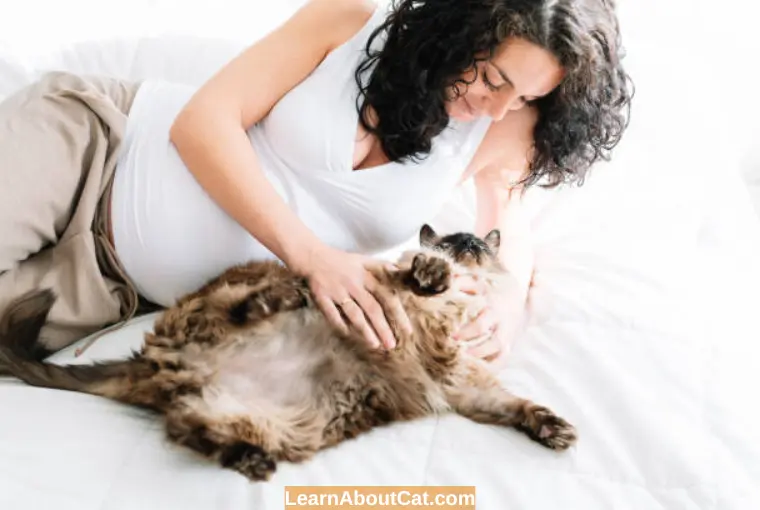
1. Body odour changes
Body odour changes during pregnancy are perfectly natural, even if they are very strong. The abrupt surge in pregnancy hormones causes it.
Because a cat’s sense of smell is 14 times greater than that of a person, it’s no wonder that cats can detect this little change in their owner’s characteristic smell.
2. Body Temperature Fluctuations
Because of several changes in your body, your body temperature may rise somewhat. If you notice your cat curling up and feeling more comfortable on your lap, it is most likely due to your rise in core body temperature. Cats, after all, like warmth.
3. Baby’s Heartbeat
Despite their ears being perky and swivelling, felines can detect sounds that are far above the average human’s ability to hear. During the first few weeks (around 5 0r 6 weeks ) after conception, fetal heartbeats become noticeable, but you can only hear them with a stethoscope or doppler.
While your cat snuggles on your belly, she may notice a faint heartbeat, but if she can hear an unborn baby’s heartbeat, she would probably do so closer to the third trimester.
4. Body Language Changes
Cats are excellent at interpreting body language and may tell when your motions become uncomfortable, and your posture changes during pregnancy.
5. Alterations in Everyday Routines
Cats can detect changes in your regular behaviours and routine, which might suggest that your body is undergoing significant changes.
6. Cat’s clinginess
If your cat becomes suddenly possessive about you, it might be because she detects a change in your body and wishes to defend it. Cats are instinctively protective of their owners. Pregnant mothers notice that their cats become extremely friendly and cuddly.
7. Cat Naps on Your Belly
Your cat may sleep with her back to you during your pregnancy or press against your tummy as the baby begins to kick inside. This is due to the fact that she senses the kid moving and wants to be a part of it. Cats are already friendly and attentive, but when you’re pregnant, this attachment is amplified.
8. She Brings You Presents
Cats have an instinctive need to hunt, even if it’s only a plush mouse toy or a kitty-safe chewing ring from Amazon. Pregnant ladies may see their cats giving them more toys and mementoes than usual.
9. She Rests her Paw on Your Belly
Seeing your cat lying next to you more often and placing one or both of her paws on your abdomen might signify that she knows you’re pregnant.
10. You’re in Her Trusted Circle
If your cat is normally wary of strangers, she will recognise something special about you if she begins to allow others to touch her.
The Best Way to Help Your Cat Adjust to Your Pregnancy
Everyone in the home rejoices when a new baby arrives except your cat. The abrupt emergence of a new family member causes chaos and change, which cats despise. Cats, creatures of habit that rely on things remaining the same, are often irritated by disruptions in their domain or routine.
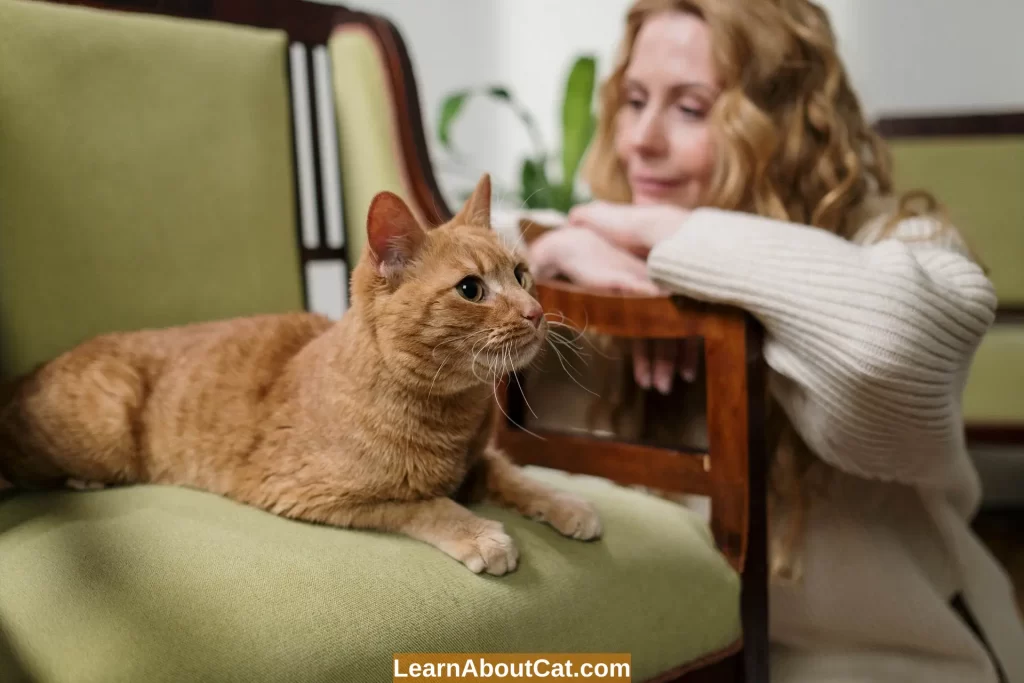
1. Playtime and Attention Should be Limited
Don’t give your cat too much playing and attention before the baby is born. Many parents inadvertently do this since they are aware that their children will consume all of their attention in the future. However, your cat will develop accustomed to the additional snuggling and will be perplexed when it decreases when the child comes.
2. Make a Schedule
Choose times when you can regularly feed your cat, clean his litter box, and give one-on-one care because your attention will ultimately shift to the baby’s demands.
3. Introduce Baby Objects
Allow your cat to inspect the crib, swing, diapers, changing table and clothes. Allow him to go about it.
4. Newborn Things Should be Thoroughly Investigated.
Give him goodies simultaneously so that he links new items in his environment with rewards. Cover the crib and change the table once he’s thoroughly investigated them so he doesn’t think they’re someplace where he can sleep.
5. Reduce your Cat’s Sensitivity to Baby Noises
Even adults may be bothered by crying newborns, let alone cats. To assist your cat in coping with these distressing sounds, record a friend’s crying baby or get a CD of a crying baby.
Give your cat a reward or engage with him while playing with the child’s noises at a low volume for a few minutes.
6. Toy Desensitisation for Your Cat
There is no shortage of creaking noises and songs produced by the equipment. Set them up ahead of time and turn them on at regular intervals to assist your cat in acclimating. This gives him plenty of opportunities to examine and become acquainted with them.
Cats and Your Actions During Pregnancy
Not only are your hormones altering throughout pregnancy: You’re irritated, cranky, tired, and frequently nauseous. Those emotional shifts will influence your behaviour, and your cat will almost certainly notice.
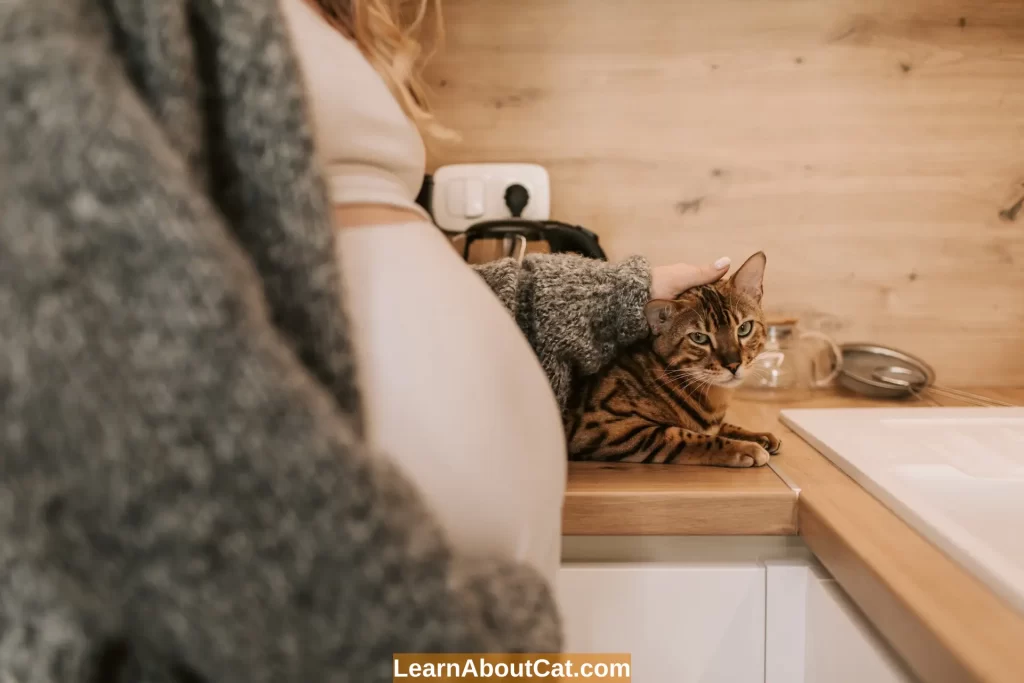
- If you spend every morning vomiting in the toilet instead of feeding them at their normal time, she will notice due to fast-rising hCG levels.
- Progesterone can cause extreme fatigue during pregnancy, and your cat may wonder why you’re snoozing on the couch instead of doing errands.
- You’re busy with baby planning, like decorating the nursery and pouring over baby-name lists.
- Because your blood volume and circulation increase during pregnancy. Your cat may sense that you are running hotter than normal.
- If you’re normally your cat’s primary carer, you should stop cleaning their litter box. They may be questioning why someone else is now handling the duty.
Frequently Asked Questions
How soon can cats sense pregnancy?
Cats can detect pregnancy relatively early by detecting changes in your odour due to hormones, body temperature, and body language. According to some reports, cats are capable of detecting pregnancy as early as 3 to 4 weeks after conception.
Is it safe to keep a cat during pregnancy?
Yes, you are allowed to keep your cat. The most concerning problem is toxoplasmosis which is transmitted by cat excrement. This fungus occurs only in cats that hunt rodents outside. Your risk of getting toxoplasmosis is very low if your indoor cat only eats cat food and doesn’t get in contact with outside animals.
Can my cat hear my unborn baby?
A cat’s an amazing sense of smell likely allows it to perceive changes in hormonal levels during pregnancy. They probably hear the heartbeat of the baby in the later stages of pregnancy because they have such a keen sense of hearing.
Do cats get attached to pregnant owners?
Whenever your cat senses that you’re pregnant, it might become even more affectionate than usual. As they spend more time with you, you’ll notice that they rub against you and stay close to you. Emphasizing your importance to them is their way of becoming more maternal.
Why does my cat lay on my pregnant stomach?
When you’re pregnant, your body may be a little warmer, so your cat may want to snuggle up for comfort.
Do cats get jealous when you are pregnant?
There is no doubt that cats can be jealous of new babies brought into the family. It may be necessary for you to seek assistance from a trainer or veterinarian if your cat starts misbehaving significantly during pregnancy.
Can cats get stressed when the owner is pregnant?
As your pregnancy progresses and when the new baby arrives, some cats may become stressed and anxious. There are likely to be definite changes in your cat’s mood and behaviour following the baby’s arrival, especially if it encroaches on “their” turf.
Final Words!
Cats are calming to be around, so it’s no surprise that many people maintain pets. Many individuals have pets before having children. However, some cats have certain worries in addition to the pleasure they provide. What causes cats to attack pregnant women? It might be a combination of jealousy and dread.
Cats can become violent while their owners are pregnant. Unfortunately, because of his violent demeanour, he may become just another confused cat who ends up in a shelter.
Related Posts:
- Why Does My Cat Follow Me Everywhere And Sleeps With Me?
- Cat Ate a Birth Control Pill What Should I Do?
- Why Is My Cat So Affectionate All of a Sudden?
- Why Do Cats Get In Your Face While You Sleep?
- Do Cats Get More Affectionate With Age?
- How Many Times Can A Cat Get Pregnant In A Year?
- How To Tell If Cat Mating Was Successful?
- Can a Neutered Male Cat Still Get a Female Pregnant?
- How Much to Feed a Kitten? Ketten Feeding 101
- How To Tell If Cat Mating Was Successful?
Who is Isabella?
My name is Isabella, and I am a dedicated and knowledgeable cat enthusiast. With years of experience caring for cats and a deep love for felines, I made a mission to help other cat lovers navigate the challenges of cat ownership.



